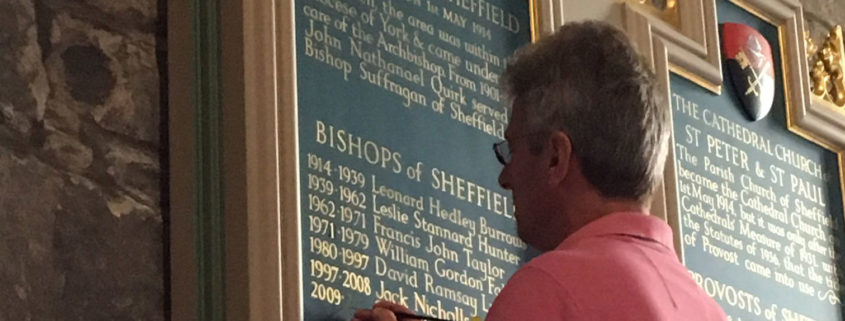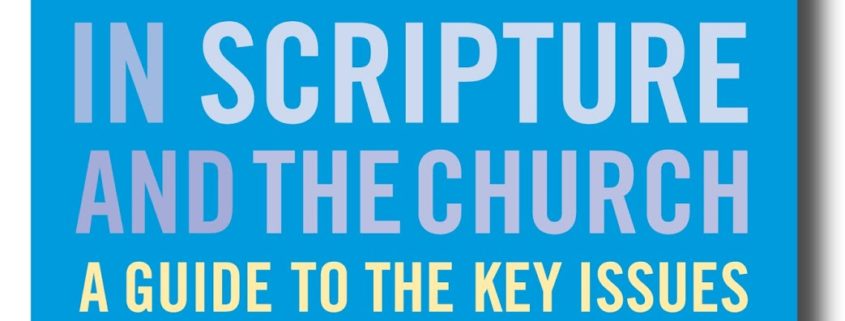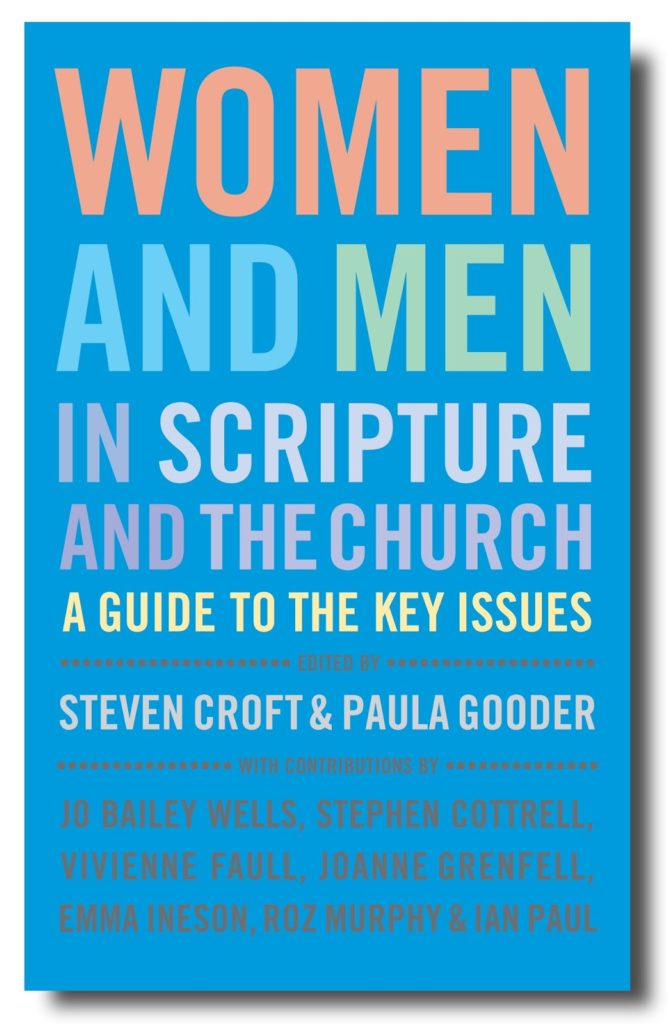The Sheffield Diocesan Synod met this morning just a few days after the General Synod debate on the Measure to enable women to be ordained as bishops. At most Diocesan Synods, the Bishop gives a Presidential Address. This is my address from this morning. It’s slightly longer than usual because of the subject matter. You should be able to find a downloadable document and a video of me giving the address sometime today on our website: http://www.sheffield.anglican.org
Update: video version now online here: http://www.youtube.com/watch?v=JLRJfqKIWDQ&feature=player_embedded The Bishop of Sheffield Presidential Address to the Diocesan Synod 24th November, 2012
Dear Friends
I am deeply saddened that the Measure to enable women to become bishops was not passed by the General Synod on Tuesday by a very narrow margin in the House of Laity.
However sincere the convictions of those who voted against the Measure, it is my honest view that the standing of the Church of England in our nation has been damaged, I hope temporarily, and that this decision will make it more difficult in the months to come to proclaim the gospel with joy and confidence which is our calling and responsibility before God. We have been in difficult places before. We are a Church who believes in hope and resurrection and that God is at work in every situation. However, on any understanding, these are serious matters.
I give heartfelt thanks to God this morning for the ministries of the women who are priests and deacons in the Diocese of Sheffield and more widely. I deeply value and cherish their ministries as do the parishes where they serve. Alongside their male colleagues, they serve sacrificially, wholeheartedly, with great skill and dedication. Many, I know, feel bruised by this decision not because they want to be bishops but because they feel their own ministries as priests and deacons are again called into question. To live a sacrificial life as a priest or deacon is hard but to do so knowing that part of your own church is questioning your ministry is a difficult calling indeed. I hope every person here will take time and trouble to affirm and celebrate and appreciate the ministry of our women clergy in the Diocese in the coming days and weeks.
Many others, lay people and clergy feel angry and bewildered. For many of us, the rightness of this development has never seriously been in question. Many others have campaigned for many years. Many are asking how the General Synod can vote down a Measure approved by 42 out of 44 dioceses, which has taken up so much time and energy over the last 12 years and which will now continue to take time and attention away from other vital matters.
The Dean has already described the events of the Synod in some detail and I will not go over them again. I want in this Presidential Address to address five questions as we move forward together as a Diocese.
First I want to affirm the Christian understanding of the equality of women and men before God in society and in the life of the Church.
Second I want to address those who are feeling angry and hurt by this decision.
Third, I want to make some comments to those have opposed the Measure.
Fourth I want to look ahead a little.
Finally I want to draw us back to the love of God and of our neighbour which is the heart and centre of our faith.
1. The equality of women and men before God
First then, the Christian understanding of the equality of women and men before God in society and in the Church. There is a great difference between what those arguing against this Measure in the Synod wanted to say and what our society heard. What they wanted to say was, this Measure is not the right way forward, the details of the provision are not right, we need to think again.
However what our society heard in those arguments was that women are not equal to men in the eyes of the Church. No-one who read the newspapers on Wednesday and Thursday, or who listened to the Prime Minister, or heard the radio and television discussions can be in any doubt that that was the message which came through.
So let me put the case as simply as I can for the equality of women and men in society, in family life and in the ministry of the Church.
It is a case built as it must be on the Scriptures.
In the creation narrative in Genesis 1 the whole stress is on the equality of men and women within a single humanity against the flow of the culture of the ancient world:
“So God created humankind in his own image; in the image of God he created them; male and female he created them” (Genesis 1.26)
Two genders, male and female, are both equally part of one humanity.
In the creation narrative in Genesis 2, the stress is again on one humanity, with the high point of that narrative the creation of woman. Twice we read that woman is to be a helper and partner. The language of partnership is not the language of subordination. The Hebrew negedo means at its root what is conspicuous or in front. The Septuagint translation is boethos homoios auto – “a helper equal in stature to him” (Genesis 2.18-25).
It is only after the fall in Genesis 3 that the subordination of woman to man and differentiation of function enters the biblical narrative as a consequence of sin. But the effects of the fall, we believe, are redeemed and transformed by the actions of Christ.
St. Paul stands firmly within the main biblical narrative when he declares in Galatians: “As many of you as were baptized into Christ have clothed yourselves in Christ. There is no longer Jew or Greek, there is no longer slave or free, there is no longer male and female for all of you are one in Christ Jesus” (Galatians 3.27-28).
Christ came to restore to humanity all of that which is lost. The equality of women and men before God is one of those lost strands.
The ordering of ministry in God’s church, the redeemed people of God, needs to reflect as far as possible the new humanity and order created by Christ rather than the old order. This means equality of gender not subordination in every order of ministry including the ministry of deacons, priests and bishops.
The earliest Christians were striving for that new equality. There is evidence for that all over the New Testament. In Romans 16 we read of Phoebe the deacon described as a leader of many. The Greek word is prostasis, the same root used and translated leader in Romans 12.8. We meet Prisca, named before her husband Aquila, fellow workers, echoing Genesis 2, who risked their lives. We meet Junia, prominent among the apostles. Women and men exercising ministry and leadership together in a way counter to the culture of the day.
It is true that a small number of , mainly later, passages give a contrary view and seem to prohibit women from speaking or being in authority. But those very passages are evidence for the practice they were trying to suppress. They stand outside the main flow of scripture. They need to be read carefully. The seeds and signs of equality between men and women in ministry are present and affirmed in the Scriptures.
All interpretations of Scripture on the question of women in ministry have to account for these two variant traditions in the New Testament. Which should we take as our guide today? Should we follow the dominant tradition and direction of Scripture which affirms equality and partnership in ministry as in the rest of life or the minority tradition in which the ancient Church was accommodating to its culture, we can only assume for the sake of the greater good of the proclamation of the gospel.
The Church of England has determined for some years that the majority reading is the right one for our times and, indeed, is our adopting it is overdue. That is especially the case because in our culture it is essential to affirm equality and partnership in leadership and ministry for the sake of the greater good of the proclamation of the gospel as the response to the Synod decision has made very clear.
This scriptural understanding of the equality of women and men lies right at the heart of the womens rights movement worldwide historically and in the present day. The early suffragettes took part of their inspiration from the Bible. It is a vital part of the Christian witness not only in this country but across the globe in relief and development.
2. A word to those who feel angry or hurt by this decision.
I have spoken and corresponded with a large number of angry and hurt people since Tuesday evening. So great is their hurt and anger that a significant number have talked of resignation and withdrawal – from their posts, from additional responsibilities, from volunteering, from the life of the Church of England.
I can understand those feelings. They will take time to work through. In the end we must each reach our own decisions. However I want to encourage anyone in that position with all my heart to channel that sense of hurt and anger not into withdrawal but engagement and not into unthinking criticism of others which damages the body of Christ but into constructive work for the future: be part of the change you want to see and bring your passion with you.
I have been reminded over the last four days of the story of Elijah after the great confrontation with the prophets of Baal on Mount Carmel. Elijah is drained by that encounter. He is led by God into the wilderness, to the roots of his faith. God ministers to him there. He encounters God not in earthquake, wind and fire but in the still small voice. What many of us need and what the whole Church needs in this moment is time apart, a long journey back to the source of our life and to hear again that living word, that call to us, to re-engage and move forward.
It is an old adage but a true one that decisions are made by those who show up and become involved. This may be a watershed moment for the Church of England. My prayer is that many will hold fast and deepen not lessen their commitment to transformation.
3. Some comments for those who have opposed the Measure
One of the features of the General Synod debate on Tuesday was that nobody won. In conversation with bishops, clergy and lay people who voted against the Measure there is no sense of victory. No-one wants to be in this situation. Everyone recognizes it to be serious. Over and over again in the debate there was a willingness expressed by opponents of the Measure to find a constructive way forward, a willingness which will be tested in the months to come.
In my view, those opposed to the ordination of women as bishops are in a worse not a better place because the Measure was defeated. It is true that the consecration of the first women as bishops has been postponed by a few years. However the Church of England as a whole is more determined than ever to pursue that course and we will be held to account by the society we serve. So the uncertainty about the long term future will continue.
Through the difficult debate on Clause 5.1.c between May and September, the House of Bishops discovered an important line in this debate. Clause 5.1.c as it was meant the Measure no longer commanded the support of those who most want to see women as bishops and the senior women clergy who would themselves be women bishops. It is very hard this morning to imagine returning to or beyond that point in terms of provision.
Conversely I can see every possibility of attitudes hardening and proposals emerging at the next stage which are less reliant on legal safeguards and more on building a culture of trust.
Even if the Church of England could reach agreement on such provision, there is another factor. Parliament has become deeply involved in this debate. For the first time in history on Thursday the Speaker allowed an emergency question to the Second Estates Commissioner. 24 MP’s spoke. Not one had a good word to say about the decision taken by the General Synod. Any legal provisions in the Measure will have to pass through Parliament.
I therefore believe that this next period will continue to be an extremely difficult one for those opposed to women as priests and bishops. The alliance between conservative evangelicals opposed to women’s headship and anglo-catholics opposed to the ordination of women will be subject to significant scrutiny. I expect these two very different theological positions will attract increased attention and criticism. Before Tuesday’s vote, these two positions had not been much examined and tested in public debate. They were simply respected as minority views held in good conscience. However they now, sadly, have much greater importance and will be subject to much closer scrutiny.
So let me say again this morning what I have said on a number of occasions. I want to affirm and work closely with parishes and clergy in these two very different traditions. I am glad that you are well represented in this Diocese. You stand high in my affection and esteem as clergy and people. I will do my best to continue to work with you, to support you and to provide pastoral support. I hope that our co-operation and our ways of working together will become closer locally as the debate continues nationally. Whatever the eventual outcome, I want to maintain a generous way of working together in this Diocese which is consistent with the current provision and pattern.
However I am not a neutral voice in this debate. I remain as I have always been passionately committed to seeing women ordained as bishops in the Church of England.
4. What will happen next?
What will the next steps be in this process? The House of Bishops meets on 10th and 11th December and this will be the main item on our agenda. Papers are being prepared for that meeting scoping possible ways forward. These will, I think, include the possibility of bringing something back within the lifetime of this Synod though all sides acknowledge that fresh thinking is needed. As you will see from the voting figures, the Bishops of the Church of England are very largely of a common mind on the question and I think very determined to press forward and to offer clear and determined leadership. However it will be some weeks before we reach a conclusion on what the next steps will be.
5. And Finally
I would have loved to have spent more time this morning reflecting with you on my recent visit to the Roman Catholic Synod of Bishops in Rome and all I heard there about the worldwide Church and the transmission of the faith.
However I do want to end with the bible story which forms the basis of the Pastoral Address from that Synod: the story of Jesus’ encounter with the woman at the well of Samaria.
It is the story of a woman. A woman who is like many in our global, secularized society. Her relationships are in chaos. Her religious ideas are confused. She is full of fear and suspicion. Her inner world is in Pope Benedict’s profound image, a wilderness and a desert. In every life there comes a moment when a woman or a man brings the emptiness of their life to the well, looking for water which quenches the deepest thirst, for the heart’s deepest desire.
Jesus is stripped of everything in this encounter. He has crossed over to Samaritan country. He has no disciples, no miracles to offer, no food, no bucket to draw water. He asks for help and shares himself and draws this thirsty woman to the living, healing waters. Her life is changed and so is the life of her community.
Jesus is a model for his disciples here, to be sure. In moments like this it will do us all good to leave the church politics behind and return to the simple tasks of going to where people are, serving them, sitting and listening and loving and healing. I’m sure that many of you have been doing that this week as I have and finding life and reality there.
But the woman at the well is a model for the Church at this moment as well. Angry, fearful, confused, conflicted, needing grace, thirsty for living water, sensing our need for Jesus Christ in the midst of the present moment.
We must come, all of us, with our thirst, to the well and come together and find the Way.





